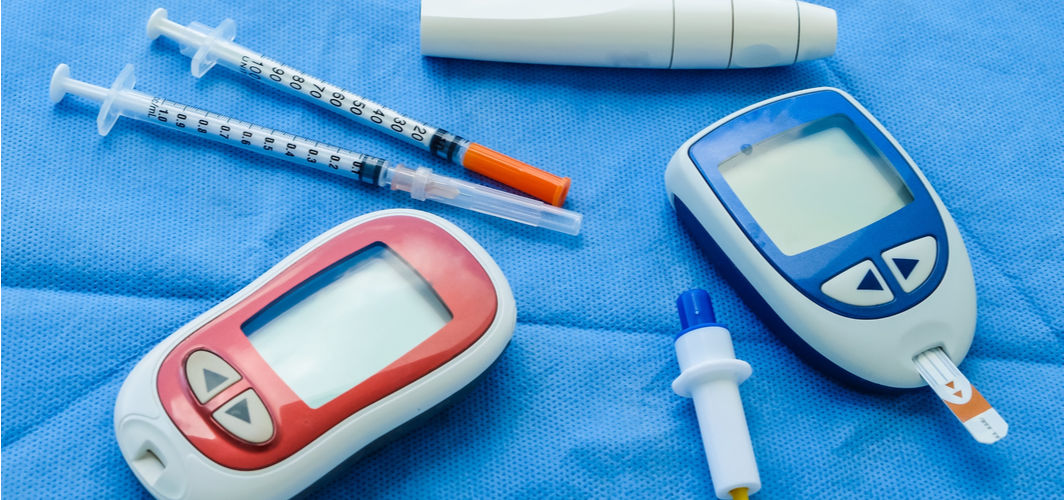Diabetes Management
Sabudana and Diabetes: Understanding the Nutritional Balance
1 min read
By Apollo 24|7, Published on - 05 August 2024
Share this article
0
0 like
.jpg?tr=q-80)
Sabudana, commonly known as tapioca pearls, often raises questions about its suitability for individuals managing diabetes. With its medium-high glycaemic index (GI) and carbohydrate content, one may wonder if it's a safe choice. This piece sheds light on this popular staple in Indian cuisine and its impact on your blood sugar levels.
GI and Carbohydrate Content of Sabudana
Sabudana has a medium GI of 67. Foods with medium to high GI can lead to rapid spikes in blood sugar levels. Moreover, one cup of Sabudana contains a hefty amount of carbohydrates, which might be excessive for individuals with diabetes in a single serving.
Consuming Sabudana the Right Way
Eating Sabudana in small portions, about 1/2 to 1 cup per meal, is advisable. To balance the meal, pair Sabudana with fibre-rich vegetables, which can slow down the absorption of glucose and thus stabilise blood sugar levels. You can also add protein sources such as boiled eggs or lentils to help regulate blood sugar and feel fuller for longer.
Potential Benefits of Sabudana
Despite its GI and carbohydrate content, Sabudana offers certain benefits. It is rich in resistant starch and is gluten-free, making it suitable for individuals with gluten sensitivities or celiac disease. Furthermore, it provides a quick energy boost due to its carbohydrate content.
While Sabudana can be part of a diabetic diet when consumed in moderation and paired with low-calorie, fibre-rich foods, it's crucial to monitor portion sizes to minimise its impact on blood sugar levels. Consulting with a doctor or a registered dietitian can guide you on how much Sabudana to include in your personalised diabetic management plan. Enrolling in a programme like Apollo Super 6 can provide additional support in managing diabetes through lifestyle changes and personalised coaching.
Diabetes Management
Consult Top Diabetologists
View AllLeave Comment
Recommended for you
.jpg?tr=q-80)
Diabetes Management
Boosting Energy for Individuals with Diabetes: Diet, Workout, and Lifestyle Tips
Managing diabetes while maintaining energy levels requires a harmonious balance of diet, workout regimes, and lifestyle adjustments. From adopting balanced meals with low-glycaemic index foods to regular physical activity and stress management, each step contributes significantly to blood sugar control and vitality. The Apollo Super 6 programme offers comprehensive support in achieving this balance sustainably. Consider enrolling in this programme to receive holistic support,

Diabetes Management
What Travel Essentials Should People with Diabetes Carry?
To ensure proper diabetes management while traveling, individuals should pack essential items such as a glucose meter, oral diabetes medications, insulin or insulin pump with supporting documents, insulin and syringes, test strips, lancing device and lancets, non-medical supplies, fast-acting glucose, glucagon emergency kit, small packaged snacks, prescription, medical history, and health insurance card.

Diabetes Management
Eating Red Meat Can Increase Your Risk of Diabetes: Harvard Study
A recent Harvard study reveals a concerning link between red meat consumption and an elevated risk of diabetes. Even two servings of red meat increase this risk, with saturated fats and heme iron identified as potential culprits in insulin resistance. Processed meats further heighten the risk due to additives like nitrites. The study emphasises replacing red meat with plant-based proteins. Moderation, opting for lean cuts, and choosing alternative protein sources are crucial for mitigating risks.
Subscribe
Sign up for our free Health Library Daily Newsletter
Get doctor-approved health tips, news, and more.
Visual Stories

8 Fruits That are Incredibly Healthy for Diabetes
Tap to continue exploring
Recommended for you
.jpg?tr=q-80)
Diabetes Management
Boosting Energy for Individuals with Diabetes: Diet, Workout, and Lifestyle Tips
Managing diabetes while maintaining energy levels requires a harmonious balance of diet, workout regimes, and lifestyle adjustments. From adopting balanced meals with low-glycaemic index foods to regular physical activity and stress management, each step contributes significantly to blood sugar control and vitality. The Apollo Super 6 programme offers comprehensive support in achieving this balance sustainably. Consider enrolling in this programme to receive holistic support,

Diabetes Management
What Travel Essentials Should People with Diabetes Carry?
To ensure proper diabetes management while traveling, individuals should pack essential items such as a glucose meter, oral diabetes medications, insulin or insulin pump with supporting documents, insulin and syringes, test strips, lancing device and lancets, non-medical supplies, fast-acting glucose, glucagon emergency kit, small packaged snacks, prescription, medical history, and health insurance card.

Diabetes Management
Eating Red Meat Can Increase Your Risk of Diabetes: Harvard Study
A recent Harvard study reveals a concerning link between red meat consumption and an elevated risk of diabetes. Even two servings of red meat increase this risk, with saturated fats and heme iron identified as potential culprits in insulin resistance. Processed meats further heighten the risk due to additives like nitrites. The study emphasises replacing red meat with plant-based proteins. Moderation, opting for lean cuts, and choosing alternative protein sources are crucial for mitigating risks.
